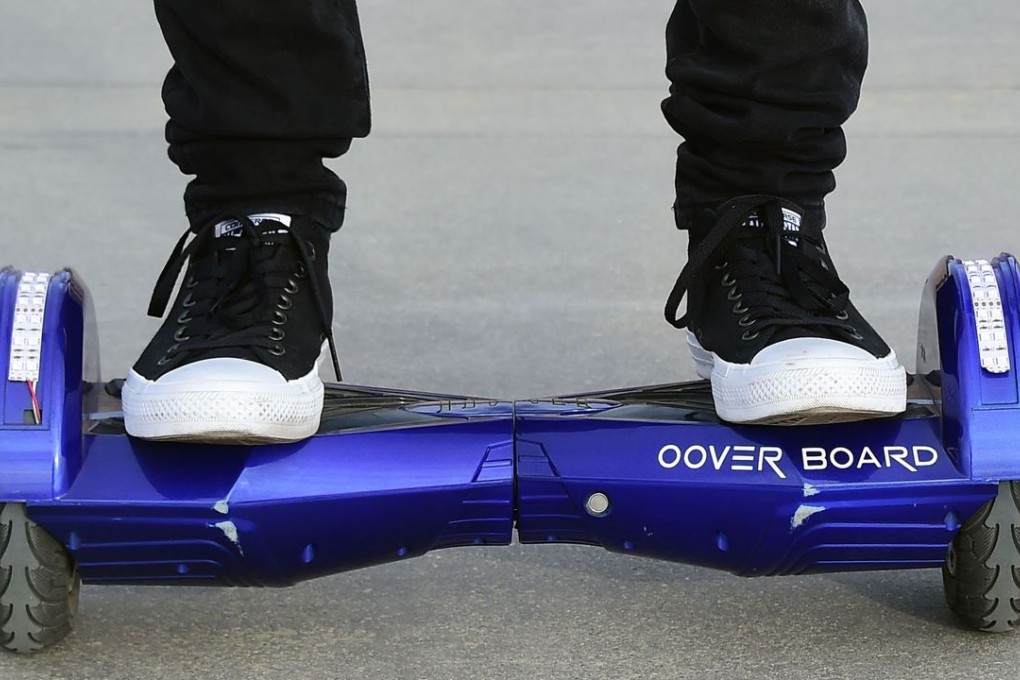Hoverboards banned from planes as airlines take a stand on security
Popular gift may be fun for their fans, but they’ve created a security headache at the airport due to fears about their safety

Dozens of hoverboards are being seized every day at Hong Kong International Airport, but not from the duty free shop shelves by bargain-hunting travellers.
Some models of the self-balancing scooters have proven to be potentially hazardous, prompting the airport to tighten security checks to stop them from being loaded onto aircraft.
They may be a popular Christmas present, but they raise alarm bells for airport scanners when they are detected hidden inside suitcases and hundreds of hoverboards have been consigned to the scrap heap this month.
After a spate of fires triggered by or associated with the wheeled boards, some of which contain lithium ion batteries, dozens of airlines – including all local Hong Kong carriers – to slap a travel ban.
Avseco, the aviation security operator at the International Airport, told the Post that hoverboards are being seized after security experts advised airlines to step up security checks so risky items don’t end up on planes. The checks appear to be working.
“For the benefit of the general public and passengers intending to travel with such devices, they are recommended to contact their flight carrier or browse their carrier’s website for updated information,” a spokesman for Avseco, which is co-owned by the Airport Authority and the Hong Kong government.
Up until December 23, 453 hoverboards were found in physical searches of 389 pieces of checked-in baggage. They were then handed back to the airlines for disposal.